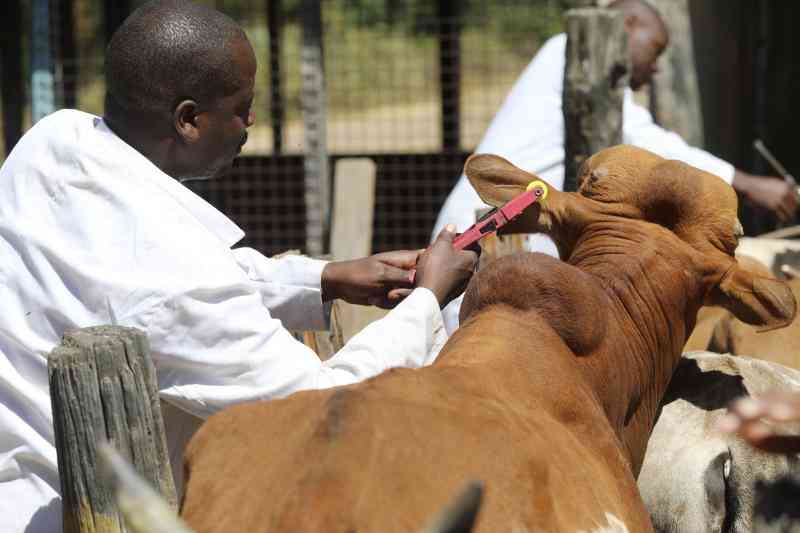
Kenya Veterinary Association personnel fix the button-like device on the cows at Al Leboi village. The electronic device captures sex, breed, health condition and estimated weight. [Kibata Kihu, Standard]
Kenya is home to a large number of livestock, which are a significant source of food, income, and employment for millions of people. However, the country's animal health sector faces many challenges, including limited resources, inadequate infrastructure, and a shortage of trained personnel. As a result, many animal diseases go undetected and untreated, leading to significant economic losses and public health risks.